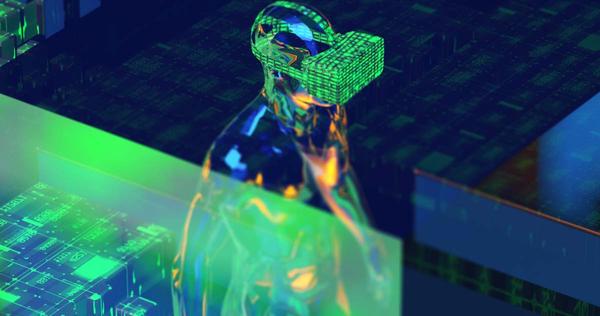Matrix, the metaverse and Artificial Intelligence, reality or fiction?
Now, two decades later, Matrix returns with its fourth installment entitled "Matrix Resurrections", and plunges us back into a science fiction universe but, at the same time, exposes us to a world very similar to our current one, so much so that it makes me I encourage you to refer to it as a satire of the world in which we live. Why do I say this? I'll tell you now.
“Matrix Resurrections”, a film directed by Lana Wachowski, introduces Thomas Anderson (Neo) as a video game developer. The character of Neo is the founder of the Matrix, a video game that is created in an environment similar to the Metaverse, a concept that broke into the technological conversation during 2021 and that generated many questions, some of them were even related to science fiction and the possibility that people confuse reality with the virtual.
On the other hand, this plot shows us how the Artificial Intelligence (AI) of the Matrix builds a new world where Neo does not remember his past and in which his existence becomes a vital part of the balance within it. At this point, it is worth making a parenthesis to highlight that, for the first time, the AI presents an internal conflict and ends up dividing into two camps: one in which they experiment with humans as disposable batteries, and another in which machines work with humans to create a better world.
Inevitably, the perspective raised by this film leads me to stop and think about the possibility of a not too distant future, where machines end up doing most of the human work. Visualizing this disruptive thought, I can't help but wonder: How will we be useful? What relationship will we have with them and how will we be of value to the Artificial Intelligence ecosystem?

Although there are different hypotheses in this regard, I can say that the worst scenario that we can consider, perhaps the most apocalyptic, is that human beings are useless and that AI ends up seeing us as a threat.
But if we consider the best scenario, or at least a more positive one, we can think of ourselves as the ones in charge of adding value in the development and evolution of AI, and that we are a fundamental part of its growth. In other words, that we get to establish a balanced collaboration with this emerging technology.
As for how we will be of value to the Artificial Intelligence ecosystem, I firmly believe that the great value of human beings is their emotions, as well as all the information they are capable of generating, which ends up becoming millions of bits of data that they turn to a process of self-reflection and identification of strengths and weaknesses.
Having said that, the next question that comes to my mind when I see the film and that I find interesting to address is how distant is the future posed in The Matrix?
Read more
How to participate in the Artificial Intelligence race?
To answer this question, I resort to the forecast that some experts have, who maintain that Artificial General Intelligence (a term used for robots or intelligent and independent systems) can arrive in the next 30 years. In fact, according to AGI, by the year 2050 we will already have autonomous bots with the ability to think, feel and learn. But will we be ready for that transformation?
